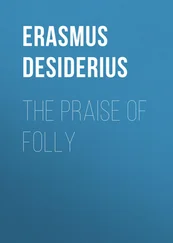Hannibal Gamon - The Praise of a Godly Woman
Здесь есть возможность читать онлайн «Hannibal Gamon - The Praise of a Godly Woman» — ознакомительный отрывок электронной книги совершенно бесплатно, а после прочтения отрывка купить полную версию. В некоторых случаях можно слушать аудио, скачать через торрент в формате fb2 и присутствует краткое содержание. Жанр: foreign_antique, foreign_prose, на английском языке. Описание произведения, (предисловие) а так же отзывы посетителей доступны на портале библиотеки ЛибКат.
- Название:The Praise of a Godly Woman
- Автор:
- Жанр:
- Год:неизвестен
- ISBN:нет данных
- Рейтинг книги:4 / 5. Голосов: 1
-
Избранное:Добавить в избранное
- Отзывы:
-
Ваша оценка:
- 80
- 1
- 2
- 3
- 4
- 5
The Praise of a Godly Woman: краткое содержание, описание и аннотация
Предлагаем к чтению аннотацию, описание, краткое содержание или предисловие (зависит от того, что написал сам автор книги «The Praise of a Godly Woman»). Если вы не нашли необходимую информацию о книге — напишите в комментариях, мы постараемся отыскать её.
The Praise of a Godly Woman — читать онлайн ознакомительный отрывок
Ниже представлен текст книги, разбитый по страницам. Система сохранения места последней прочитанной страницы, позволяет с удобством читать онлайн бесплатно книгу «The Praise of a Godly Woman», без необходимости каждый раз заново искать на чём Вы остановились. Поставьте закладку, и сможете в любой момент перейти на страницу, на которой закончили чтение.
Интервал:
Закладка:
The Diuiſion.
A promiſe this is and affirmatiue, and an affirmatiue promiſe hath two parts in it. The firſt is the Partie to whom it is made, and ſhee is Muliertimens Dominum . A woman that feareth the Lord , which is alſo the reaſon why ſhe ſhall be praiſed: euen becauſe ſhe is a woman fearing the Lord . The ſecond is the thing promiſed, and that is Laudabitur, ſhe ſhall be praiſed .
I.
In the former, it is not enough that ſhe is a woman, becauſe euery woman is not Timens , one that Feareth , nor ſufficient that ſhe Feareth ; becauſe euery woman that feareth is not Timens Dominum , one that feareth the Lord ; but ſhe that ſhall be praiſed , is all three. 1. A woman by nature 22 22 Naturale vocabulū eſt Fœmina. naturalis vocabuli generale, Mulier. – Tert. de Virg. Veland. cap 4.
, where the weaker her ſex is, the more ſhee ſhall be commended. 2. By Grace 23 23 Aliud eſt Timere ſimpliciter, aliud Timere Deum – quippe timere & amare ſimpliciter prolata, affectione: cum additamento aute virtutes ſignificāt. Simplices nempe affectiones inſunt naturaliter nobis tanquam ex nobis, Additamenta ex Gratiâ. S. Bern. de Grat. & lib. Arb.
, a woman that feareth , where the continuall act of this Fearing is required. 3. That feareth the Lord , where the right Obiect of her continuall feare is limited.
II.
And in the latter we are to conſider; Firſt, to what matters, Laudabitur , her praiſe will reach, and in what reſpect to Ipſa Her perſon. Then ſecondly, When ſhe ſhall be praiſed ; not for the preſent, perhaps, no more than ſhe hath beene heretofore; yet Laudabitur , the time will come when ſhe ſhall be praiſed , and then too her praiſe ſhall ſo be, that it ſhall be ſtill. Thirdly, of whom ſhee ſhall haue praiſe, for Laudabitur is an action, and must bee done of ſome agent, therefore we muſt finde who ſhal praiſe her, and they will fall out to be her Huſband and her Children (if ſhe haue them 24 24 Mulier enim no naturâ nomen eſt vxoris, ſed vxor coditione nomen eſt mulieris. Tert. ib. c. 5. Gen. 2. 23. Hæc vocabitur mulier, quoniam de viro ſuo ſumpta eſt: Quia ſumpta eſt (inquit) de viro suo, non quia virum experta … Non enim corruptelæ, ſed ſexus vocabulum eſt. Gal. 4. 4. Luke 1. 28. S. Ambr. ibid. c. 5.
) and if they faile in this dutie, then the godly ſhall praiſe her; and if they ceaſe to doe it, then her own workes ſhall praiſe her, yea rather than faile, God himſelfe ſhall praiſe her, which is beſt of all. So ſure ſhe is to be praiſed, not for the preſent onely, but for euer. And ſo this Text beſides that it is a Promiſe , it is alſo a Motiue to ſtirre vs vp to feare God, that so we also may haue true and eternall praiſe of God. It is both, and both waies wee to haue vſe of it, as of a Promiſe , and as of a Motiue : both theſe waies at once; A woman that feareth the Lord ſhe ſhall be praiſed.
A Promiſe, and Motiue.
I.
The partie that ſhall be praiſed.
A weake ſex 25 25 1 Pet. 3. 7. Ier. 50. 37. Nah. 3. 13. Gal. 3. 27, 28.
to beginne with, and yet being ſtrengthned by Grace 26 26 – Ex parte natura (niſi ſit fortitude maioris gratiæ) faciliùs incarnatur ad malum ſexus formineus. Bonau. L. 2. d. 21. q. 3. p. 18.
, no impediment; but that a woman as wel as a man may feare the Lord, and haue praiſe of him, and ſo become the partie who ſhall, and one Reaſon too, why ſhee ſhall be praiſed .
For a woman muſt be more good than nature, art, policie, preferment can make her, elſe ſhee is not good enough for Gods Spirit to praiſe her. He commends neither men nor women conſidered in their pure Naturalls only, in that eſtate of corruption, they all heare alike to their diſgrace, that they are All vnder ſinne 27 27 Rom. 3. 9.
, All come 28 28 Rom. 3. 23.
ſhort of the glory of God , and are All the children of 29 29 Epheſ. 2. 3.
wrath , becauſe they Are without all feare of God 30 30 Rom. 3. 18.
By nature then both ſexes are alike faultie, alike diſcōmendable in Gods ſight, and ſo they ſhould be in ours. We ſhould not diſpraiſe women more than men, for the ſex ſake only (as ſome doe 31 31 Eurip. Plutarc. de Tranquilit Mulier quantibuis proba, Mulier tamen eſt.
) becauſe they haue as noble ſoules as men, for 32 32 Anima enim ſexum non habet. – De Virg. som. 1. lib: 3. fol. 99.
ſoules haue no ſexes, (as Saint Ambroſe ſaith) nor praiſe women for the endowments of the fleſh onely (as otherſome doe 33 33 Cornel. Agrip. de Nobilit. fœminei ſexus. Bocacius de claris mulieribus.
) vnleſſe they be adorned alſo with the ſauing Graces of the Spirit, whereof a chiefe one is not noble birth, great wealth, excellent wit, or rare beautie: but the feare of the Lord , his treaſure. 34 34 Eſ. 33. 6.
This godly feare is that, that makes a Woman in relation 35 35 Caiet. in. loc.
to God, praiſe-worthy. And good reaſon it ſhould do ſo, if we regard the weakneſſe of a woman, in whom ſo excellent a Grace as the feare of the Lord , is found, and the Nobleneſſe of fearing the Lord, being ſo found.
Firſt, a womans weakneſſe is naturally 36 36 Naturaliter etiam maior lucti eſt inter carnem et ſpiritū mulieris quam viri: quantò enim caro eius infirmior, & ſpiritus minus promptus, tãtò pugna diſſicilior – & victoria commēdabilior. Pet. Bleſ. ſer. 33. p. 420. Timeo autem ne fortè viri à virginibus iudicentur: Comparatione tamē non Auctoritate: quia per duo tantum ſcilicet: per Fragilitatē carnis & Ignorantiam mentis putobã, &c. ſer. 35. p. 428.
greater than the mans, and therefore by how much her fleſh is weaker, and her ſpirit leſſe willing, by ſo much the combate ſhe hath, is more difficult, and the victory ſhe gets, more commendable. I know a man ( Bleſenſis by name) that thought two things ſhould excuſe him at the dreadfull day of iudgement, the Frailty of his fleſh, and the Ignorance of his minde; but then he feared leſt God would iudge men by womē, whoſe ſex being more fraile, more ignorant than that of mens, were for all that oftentimes more holy, more deuout than many men.
Secondly, the Feare of the Lord is the trueſt Nobilitie (as Gerſon 37 37 Tractat. de Nobilitate, part. 2. p. 52. lit. E. Et Greg. Naz. Orat. 13. tom. I. fol. 352.
proues) the nobleſt grace that can ennoble and extoll a man or a woman. Other naturall, ciuill, and meerely morall excellencies, perfections, and endowments a woman may haue, nay (which is neereſt the point) other kindes of Feare ſhe may haue, and yet be baſe, ſeruile, curſed as Iezebel 38 38 2 Kings 9. 34. Act. 14. 25. 1 Ioh. 4. 18.
, not praiſe-worthy, as namely, if ſhe feare men 39 39 Matth. 10. 28. Eſ. 51. 12.
, or what elſe beſides more than God, or not for God (as Saint Bernard 40 40 Convertatur ad ipſum etiam Timor tuus, quia peruerſus eſt timor omnis, quo metuis aliquid præter eum aut non propter eum. S. Ber. in cap. Ieiun. ſer. 2.
limits) or if ſhee feare God as a Iudge, in reſpect of his puniſhments only 41 41 Quid magnū eſt, pœnā timere? Quis enim nō timet? quis Latro, quis ſceleratus, quis nefarius? &c. S. Auguſt. de Verb. Apoſt. ſer. 15. fol. 332. tom. 10.
, & not as a Father for loue of his goodneſſe, and from an hatred of wickedneſſe, or if ſhe haue caſt off the feare of the Lord, which ſhee hath ſeemed to haue, or if ſhee puts off his Feare from time to time, and continues not in it.
Интервал:
Закладка:
Похожие книги на «The Praise of a Godly Woman»
Представляем Вашему вниманию похожие книги на «The Praise of a Godly Woman» списком для выбора. Мы отобрали схожую по названию и смыслу литературу в надежде предоставить читателям больше вариантов отыскать новые, интересные, ещё непрочитанные произведения.
Обсуждение, отзывы о книге «The Praise of a Godly Woman» и просто собственные мнения читателей. Оставьте ваши комментарии, напишите, что Вы думаете о произведении, его смысле или главных героях. Укажите что конкретно понравилось, а что нет, и почему Вы так считаете.












